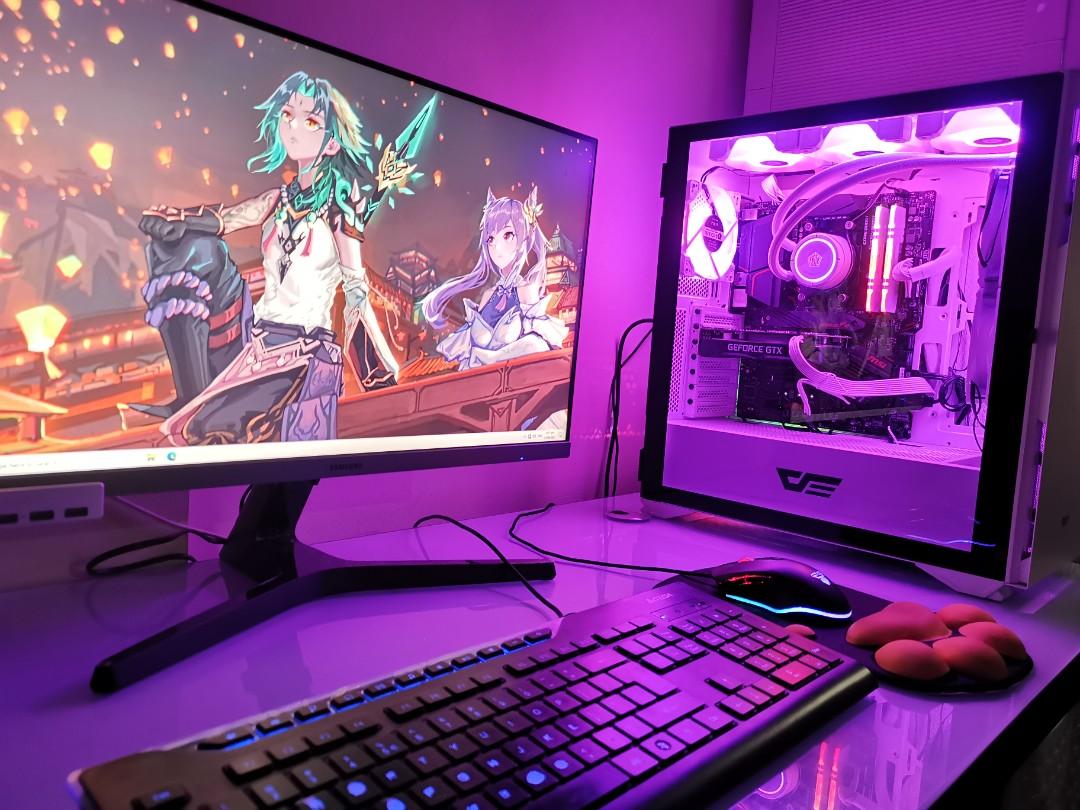
A gaming PC is a major investment, so knowing what to look for in a gaming PC is essential before making a purchase. With so many options available, choosing the right system may seem overwhelming, but it’s easier than you think. This guide will walk you through the key factors to consider when buying a gaming PC to ensure you get the best performance for your needs.
1. Start with the Processor (CPU)
The processor is one of the most critical components of a gaming PC, as it determines how well your system will perform across various applications.
- Look for a 6-core or 8-core processor for optimal gaming performance. Most modern games can take advantage of multiple cores, making these the best choices.
- The latest Intel Core Ultra 5 and AMD Ryzen 5 9000 series offer excellent performance for most gamers.
- Higher-core CPUs (10+ cores) are great if you plan on multitasking, streaming, or using demanding applications beyond gaming.
2. Prioritize the Graphics Card (GPU)
The graphics card (GPU) is the most important component for gaming performance, affecting frame rates, resolution, and visual quality.
- For 1080p gaming: Entry-level GPUs like the AMD RX 570 or NVIDIA GTX 1650 provide decent performance.
- For 1440p gaming: Mid-range GPUs like the RTX 5070, RTX 4000 Series, or AMD Radeon RX 9070 handle higher resolutions with smooth frame rates.
- For 4K gaming at 100+ FPS: High-end GPUs like the NVIDIA RTX 5090 & 5080 or AMD Radeon RX 9070 XT offer the best experience but come at a premium price.
3. Ensure You Have Enough RAM
Having enough RAM is crucial for smooth gaming performance and multitasking.
- 16GB RAM is the sweet spot for most modern gaming PCs.
- 8GB RAM can work for lighter games like Fortnite or Overwatch, but it’s not recommended for more demanding titles.
- Anything beyond 16GB is only necessary if you’re also doing tasks like video editing, 3D rendering, or heavy multitasking.
4. Choose a Fast Storage Drive (SSD vs. HDD)
Storage speed directly impacts game load times and system performance.
- Solid-State Drives (SSDs) are much faster than traditional Hard Disk Drives (HDDs).
- A 512GB SSD is a great starting point, offering fast boot times and quick game loading.
- If you need extra storage for media and games, consider adding a secondary HDD for bulk storage while keeping an SSD as your primary drive.
5. Pick the Right PC Size for Your Setup
Gaming PCs come in different sizes, each with its pros and cons:
- Small Form Factor (SFF) PCs: Compact and space-saving but may have limited upgradeability and cooling.
- Mid-Tower PCs: The best balance of size, cooling, and upgradability, making them the ideal choice for most gamers.
- Full-Tower PCs: Offer the most space for upgrades and cooling but require a larger setup area and budget.
Final Thoughts
Understanding what to look for in a gaming PC helps you make an informed decision and ensures your system meets your gaming needs. Prioritize the processor, GPU, RAM, storage, and PC size to get the best performance for your budget. Whether you’re gaming at 1080p, 1440p, or 4K, choosing the right components will enhance your experience and future-proof your investment.